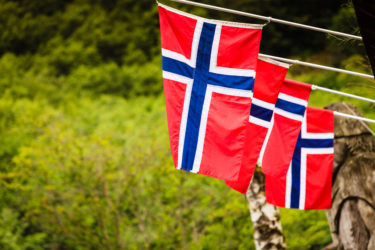 Norway’s gambling regulator Lotteri- og stiftelsestilsynet (Lotteritilsynet) has responded to the Ministry of Culture consultation on regulatory reform for gambling, suggesting that player protection measures could be ramped up further only allowing players to gamble after registering for an account.
Norway’s gambling regulator Lotteri- og stiftelsestilsynet (Lotteritilsynet) has responded to the Ministry of Culture consultation on regulatory reform for gambling, suggesting that player protection measures could be ramped up further only allowing players to gamble after registering for an account.The Ministry launched its consultation in June as it looks to consolidate the country’s Lottery Act, Gambling Act and Totalisator Act into a single regulatory framework, and notified the proposed changes to the European Commission last month.
In its response, Loteritilsynet said the move would allow for a “more holistic” regulation of the gambling market, which in turn would help raise player protection standards.
However, the regulator suggested that in order to better protect players, a provision to have all forms of gambling only open to players that have an account with a legal provider should be added.
It explained that if the likes of Norsk Rikstoto and Norsk Tipping were to be expected to maintain a high standard of consumer protection, a complete view of each user’s gambling activity would help them do so.
Lotteritilsynet also suggested that a provision should be added to explicitly prohibit direct competition to the state-owned operators in the legislation. This, it said, was necessary due to the fact that Norsk Tipping in particular offered a range of online casino games that were associated with “problematic gambling behaviour”.
These games were only considered safe to offer to players because of the strict player protection controls offered by Norsk Tipping, and direct competition could put players at risk, the regulator continued. Therefore it suggested that the new act explicitly stated that Norsk Tipping was the sole operator permitted to offer these games, which “require special public controls”.
It then argued in favour of more flexibility for small non-profit organisations to offer gambling without a licence, suggesting that businesses with turnover of less than NOK200,000, should be allowed to operate digital platforms.
Further flexibility for Norsk Rikstoto was also welcomed, namely the option for it to add fixed-odds race betting products to its portfolio. This, Lotteritilsynet said, would ensure players are channelled away from illegal operators.
However, while the new act gives the regulator the power to have internet service providers block access to offshore sites, it said more clarity was needed on how it could exercise this right. Currently, it explained, it was unclear whether it would be expected to contact with operator with a cease and desist request before issuing the blocking order.
The consultation, as well as gathering feedback from stakeholders on the new regulatory framework, also called for comments on loot boxes, and whether these should be considered a form of gambling.
Lotteritilsynet said that this was still a grey area, and while it believed that protections should be put in place for players, this should be done through a separate set of regulations, rather than as part of the Gambling Act. This could change in future, it noted, should the lines between gambling and gaming become blurred further.
While the Ministry of Culture’s consultation came to an end on 29 September, the legislation remains subject to an EC-mandated standstill period, which runs until 13 November.











